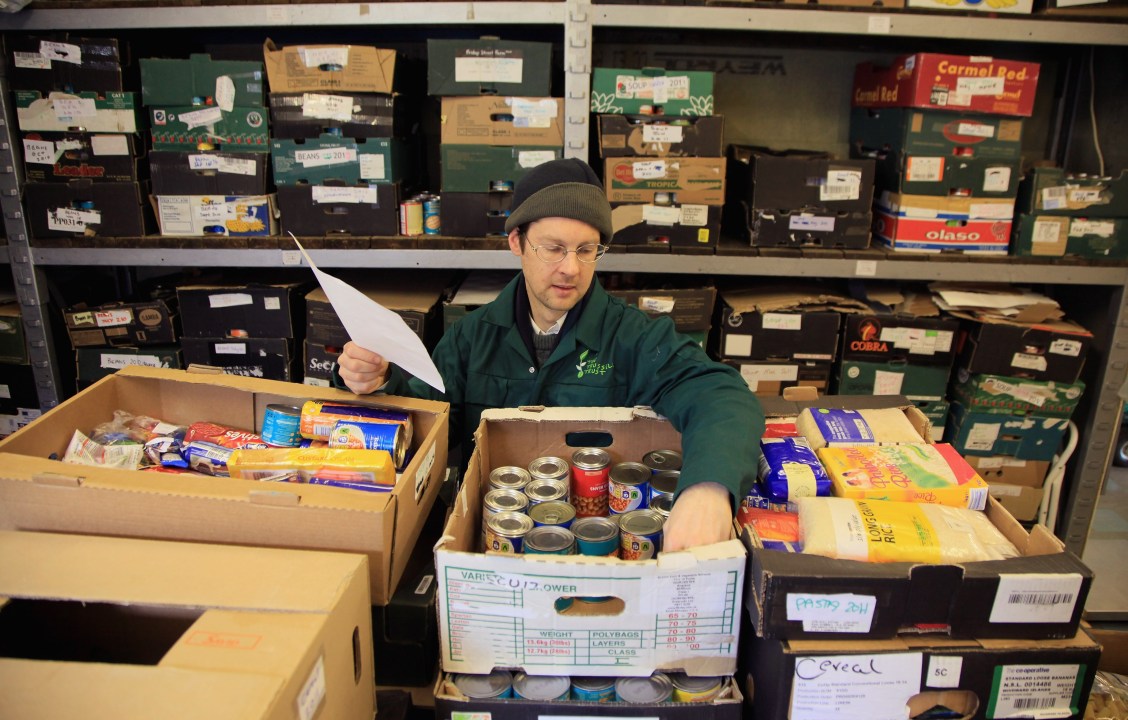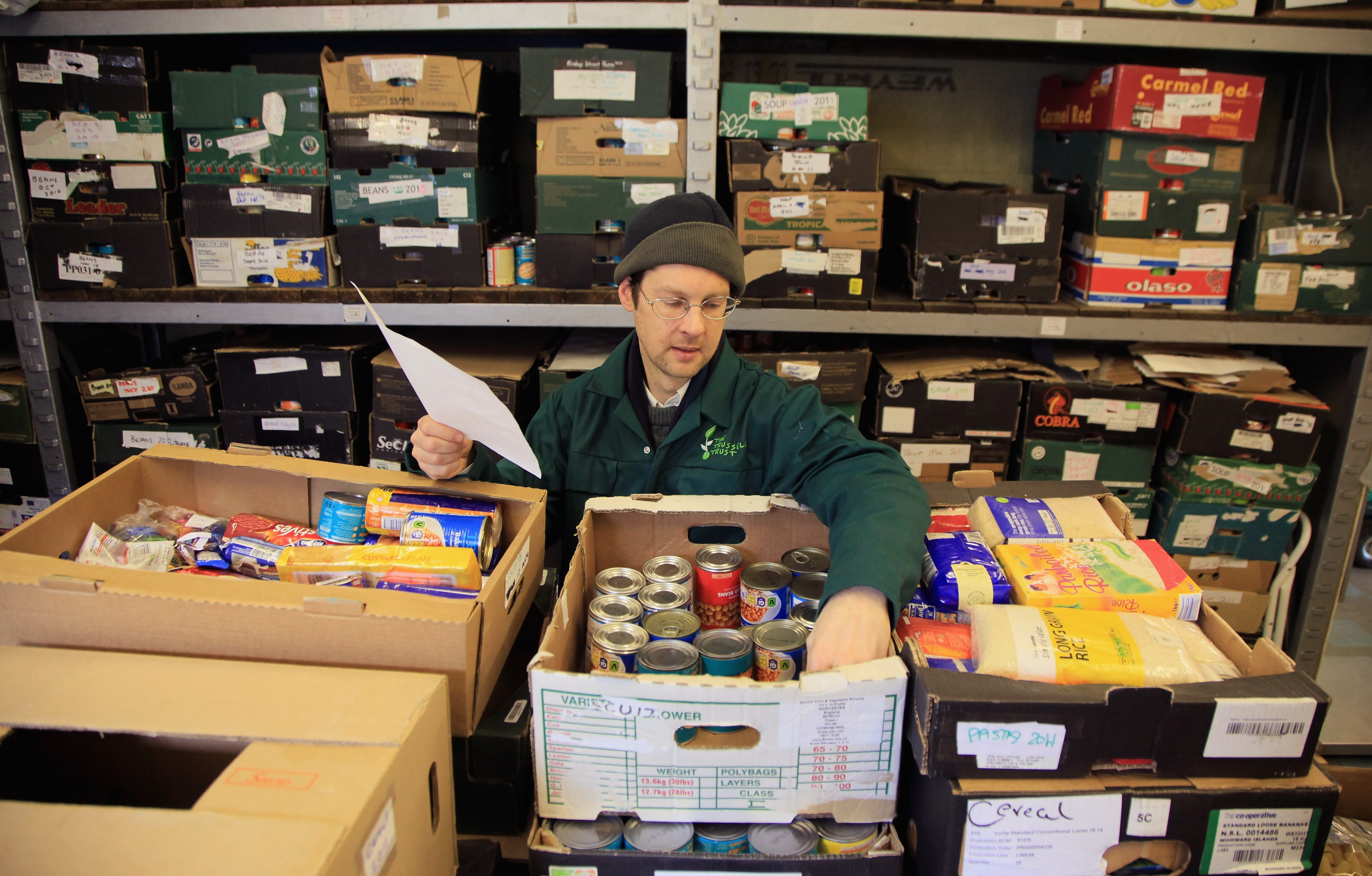The very existence of food banks is taken as proof of something rotten in Britain. If Brits are queuing for charity food parcels, the state has failed. Labour MPs brim with righteous anger: they call the rise of these charitable centres a ‘scandal’. David Cameron, for his part, wishes people would stop talking about them. The political consensus is that having anyone depend on charity handouts is a disgrace.
But that’s not what those who use the food banks think. Nor is it an opinion shared by those who run them. The Trussell Trust, now the biggest food bank provider, regards its growth as a sign of success. Standing in a warehouse crammed with tinned food, the Trust’s chief executive Chris Mould says his mission is to open a food bank in every town in the country. ‘They are an emergency intervention that costs society far less than the problems that would arise further down the line,’ he says. ‘Family breakdown, debt, crime and mental illness.’ It’s not as if the government is offering any better solutions.
Food banks are not soup kitchens, nor a sign of a society gone bad. In fact, their emergence ought to be seen as a sign of how strong Britain’s social fabric is. The real scandal, according to those who run food banks, is that that they haven’t been around for longer. They exist as a sticking plaster, usually to help families who have been allocated welfare but are waiting for the bureaucracy to process the payments. They are an emergency support in towns and cities. Without them, families would go hungry for days. Their existence is not a sign of poverty, but an indication that a welfare state with six million people on its books can get things wrong.
People don’t just wander in for a meal. Every client is referred by charity case workers, Jobcentres or social services and receives three food bank vouchers for three days’ worth of meals. Only in exceptional circumstances is food offered for longer. Walking through their doors are mothers who are left with no money to feed their children after an unexpected bill, or out-of-work labourers waiting for their benefits to come through, whether due to a glitch in the system or because their entitlement is being recalculated.
And poverty? Just one in five of those helped by food banks cite low income, and one in six mention benefit changes. There are abused women, families stricken with debt problems or overwhelmed in the holidays when there are no free school meals to tide them over. Many of the problems food banks deal with were deeply ingrained before the downturn struck.
The idea of food banks being a symptom of the coalition government’s failure is difficult to reconcile with their history. The first one appeared in Salisbury in 2000. It was the initiative of Paddy and Carol Henderson, who had returned to Britain after years of working with children leaving state orphanages in Bulgaria. They were surprised when a Salisbury mother — having read about their work in the local paper — complained to them that while she was pleased they were helping hungry children in eastern Europe, she didn’t have any food for her own family that night. Today, the Salisbury food bank is a bustling centre in a church building. Clients munch baked beans on toast at tables with cheery gingham cloths and silk flowers. Volunteers joke and clatter about in a small kitchen area. It’s the opposite of the Dickensian image conjured by the critics.
I meet one of its clients: Jo Thomson, a mother of two, who wonders what she would have done if she had not been able to apply for food. She and her two teenage children are struggling to find work. Her abusive and controlling husband left her without any money three years ago. Her home is neat, but all the switches are off at the wall, and the modest television is going, because it simply costs too much to run. She is waiting for her benefits application to be processed. Until it is, she is trying to eke out a life with two grown children that means using as little of everything as possible. ‘I am trying my hardest,’ she says quietly. ‘But I cannot meet the bills. It sounds pathetic, it makes me feel so ashamed.’ The food parcels have kept her going until the benefits come through.
When a local charity or church sets up a food bank, it connects two very important groups: those in crisis who need the food, and donors who are moved to provide it. Almost all of the food handed out by the banks comes from public donations. And it’s basic stuff: tinned fruit, fish, meat, pasta and biscuits, with other essentials like nappies and toilet roll thrown in. Some of those who donate have previously used the service themselves. Others become part of the network of volunteers who fed almost 350,000 people in the 12 months to April, nearly triple the numbers helped last year.
It is a striking phenomenon — of the existence of charity, rather than poverty. Those who say food banks are a scandal should visit one. And when one is established in your town, don’t weep and gnash your teeth. Just celebrate the fact that you live in a big-hearted society.








Comments